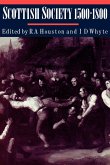Advances in Historical Orthography, c. 1500-1800
Herausgeber: Condorelli, Marco
Advances in Historical Orthography, c. 1500-1800
Herausgeber: Condorelli, Marco
- Broschiertes Buch
- Merkliste
- Auf die Merkliste
- Bewerten Bewerten
- Teilen
- Produkt teilen
- Produkterinnerung
- Produkterinnerung
Introducing a range of empirical approaches, this book traces the development of historical orthographies across a number of European languages. It will be of interest to historical linguists, students of Germanic, Romance and Slavic languages, and those interested in language documentation and description, and lexicography.
Andere Kunden interessierten sich auch für
![Woodland Imagery in Northern Art, c. 1500 - 1800 Woodland Imagery in Northern Art, c. 1500 - 1800]() Leopoldine van Hogendorp ProsperettiWoodland Imagery in Northern Art, c. 1500 - 180064,99 €
Leopoldine van Hogendorp ProsperettiWoodland Imagery in Northern Art, c. 1500 - 180064,99 €![China and Maritime Europe, 1500-1800 China and Maritime Europe, 1500-1800]() Wills, Jr, John E. (University of Southern California)China and Maritime Europe, 1500-180042,99 €
Wills, Jr, John E. (University of Southern California)China and Maritime Europe, 1500-180042,99 €![Scottish Society, 1500 1800 Scottish Society, 1500 1800]() Robert Allen Houston / Ian D. Whyte (eds.)Scottish Society, 1500 180052,99 €
Robert Allen Houston / Ian D. Whyte (eds.)Scottish Society, 1500 180052,99 €![The Family, Sex and Marriage in England 1500-1800 The Family, Sex and Marriage in England 1500-1800]() Lawrence StoneThe Family, Sex and Marriage in England 1500-180016,99 €
Lawrence StoneThe Family, Sex and Marriage in England 1500-180016,99 €![Warfare in Atlantic Africa, 1500-1800 Warfare in Atlantic Africa, 1500-1800]() John K. ThorntonWarfare in Atlantic Africa, 1500-180047,99 €
John K. ThorntonWarfare in Atlantic Africa, 1500-180047,99 €![Merchants of Maritime India, 1500-1800 Merchants of Maritime India, 1500-1800]() Ashin Das GuptaMerchants of Maritime India, 1500-180090,99 €
Ashin Das GuptaMerchants of Maritime India, 1500-180090,99 €![Death Control in the West 1500-1800 Death Control in the West 1500-1800]() Gregory HanlonDeath Control in the West 1500-180039,99 €
Gregory HanlonDeath Control in the West 1500-180039,99 €-
-
-
Introducing a range of empirical approaches, this book traces the development of historical orthographies across a number of European languages. It will be of interest to historical linguists, students of Germanic, Romance and Slavic languages, and those interested in language documentation and description, and lexicography.
Hinweis: Dieser Artikel kann nur an eine deutsche Lieferadresse ausgeliefert werden.
Hinweis: Dieser Artikel kann nur an eine deutsche Lieferadresse ausgeliefert werden.
Produktdetails
- Produktdetails
- Verlag: Cambridge University Press
- Seitenzahl: 324
- Erscheinungstermin: 6. April 2023
- Englisch
- Abmessung: 229mm x 152mm x 17mm
- Gewicht: 470g
- ISBN-13: 9781108458504
- ISBN-10: 1108458505
- Artikelnr.: 67115389
- Herstellerkennzeichnung
- Libri GmbH
- Europaallee 1
- 36244 Bad Hersfeld
- gpsr@libri.de
- Verlag: Cambridge University Press
- Seitenzahl: 324
- Erscheinungstermin: 6. April 2023
- Englisch
- Abmessung: 229mm x 152mm x 17mm
- Gewicht: 470g
- ISBN-13: 9781108458504
- ISBN-10: 1108458505
- Artikelnr.: 67115389
- Herstellerkennzeichnung
- Libri GmbH
- Europaallee 1
- 36244 Bad Hersfeld
- gpsr@libri.de
1. From the early modern era to an international research area Marco
Condorelli; 2. A phonological-graphemic approach to the investigation of
spelling functionality, with reference to early modern Polish Tomasz
Lisowski; 3. Graphematic features in Glagolitic and Cyrillic orthographies:
a contribution to the typological model of biscriptality Per Ambrosiani; 4.
The emergence of sentence-internal capitalisation in Early New High German:
towards a multifactorial quantitative account Lisa Dücker, Stefan Hartmann
and Renata Szczepaniak; 5. French and Spanish punctuation in the
sixteenth-seventeenth century grammars: a model of diachronic and
comparative graphematics Elena Llamas-Pombo; 6. Orthographical variation
and materiality of a manuscript: prestandard Lithuanian spellings in
Simonas Daukantas's History of the Lithuanian Lowlands (1831-1834) Giedrius
Subaèius; 7. Investigating methods: intra-textual, inter-textual and
cross-textual variable analyses Anja Voeste; 8. Orthography and group
identity: a comparative approach to studying orthographical systems in
early modern Czech printed and handwritten texts (c.1560-1710) Alena A.
Fidlerová; 9. Orthographical solutions at the onset of early modern
Croatian: an application of the grapholinguistic method Mateo agar; 10.
Women's spelling in early modern English: perspectives from new media
Melanie Evans and Caroline Tagg; 11. Towards a relativity of spelling
change Marco Condorelli; 12. Synergic dialogue in historical orthography:
national philologies, comparability and questions for the future Marco
Condorelli and Anja Voeste..
Condorelli; 2. A phonological-graphemic approach to the investigation of
spelling functionality, with reference to early modern Polish Tomasz
Lisowski; 3. Graphematic features in Glagolitic and Cyrillic orthographies:
a contribution to the typological model of biscriptality Per Ambrosiani; 4.
The emergence of sentence-internal capitalisation in Early New High German:
towards a multifactorial quantitative account Lisa Dücker, Stefan Hartmann
and Renata Szczepaniak; 5. French and Spanish punctuation in the
sixteenth-seventeenth century grammars: a model of diachronic and
comparative graphematics Elena Llamas-Pombo; 6. Orthographical variation
and materiality of a manuscript: prestandard Lithuanian spellings in
Simonas Daukantas's History of the Lithuanian Lowlands (1831-1834) Giedrius
Subaèius; 7. Investigating methods: intra-textual, inter-textual and
cross-textual variable analyses Anja Voeste; 8. Orthography and group
identity: a comparative approach to studying orthographical systems in
early modern Czech printed and handwritten texts (c.1560-1710) Alena A.
Fidlerová; 9. Orthographical solutions at the onset of early modern
Croatian: an application of the grapholinguistic method Mateo agar; 10.
Women's spelling in early modern English: perspectives from new media
Melanie Evans and Caroline Tagg; 11. Towards a relativity of spelling
change Marco Condorelli; 12. Synergic dialogue in historical orthography:
national philologies, comparability and questions for the future Marco
Condorelli and Anja Voeste..
1. From the early modern era to an international research area Marco
Condorelli; 2. A phonological-graphemic approach to the investigation of
spelling functionality, with reference to early modern Polish Tomasz
Lisowski; 3. Graphematic features in Glagolitic and Cyrillic orthographies:
a contribution to the typological model of biscriptality Per Ambrosiani; 4.
The emergence of sentence-internal capitalisation in Early New High German:
towards a multifactorial quantitative account Lisa Dücker, Stefan Hartmann
and Renata Szczepaniak; 5. French and Spanish punctuation in the
sixteenth-seventeenth century grammars: a model of diachronic and
comparative graphematics Elena Llamas-Pombo; 6. Orthographical variation
and materiality of a manuscript: prestandard Lithuanian spellings in
Simonas Daukantas's History of the Lithuanian Lowlands (1831-1834) Giedrius
Subaèius; 7. Investigating methods: intra-textual, inter-textual and
cross-textual variable analyses Anja Voeste; 8. Orthography and group
identity: a comparative approach to studying orthographical systems in
early modern Czech printed and handwritten texts (c.1560-1710) Alena A.
Fidlerová; 9. Orthographical solutions at the onset of early modern
Croatian: an application of the grapholinguistic method Mateo agar; 10.
Women's spelling in early modern English: perspectives from new media
Melanie Evans and Caroline Tagg; 11. Towards a relativity of spelling
change Marco Condorelli; 12. Synergic dialogue in historical orthography:
national philologies, comparability and questions for the future Marco
Condorelli and Anja Voeste..
Condorelli; 2. A phonological-graphemic approach to the investigation of
spelling functionality, with reference to early modern Polish Tomasz
Lisowski; 3. Graphematic features in Glagolitic and Cyrillic orthographies:
a contribution to the typological model of biscriptality Per Ambrosiani; 4.
The emergence of sentence-internal capitalisation in Early New High German:
towards a multifactorial quantitative account Lisa Dücker, Stefan Hartmann
and Renata Szczepaniak; 5. French and Spanish punctuation in the
sixteenth-seventeenth century grammars: a model of diachronic and
comparative graphematics Elena Llamas-Pombo; 6. Orthographical variation
and materiality of a manuscript: prestandard Lithuanian spellings in
Simonas Daukantas's History of the Lithuanian Lowlands (1831-1834) Giedrius
Subaèius; 7. Investigating methods: intra-textual, inter-textual and
cross-textual variable analyses Anja Voeste; 8. Orthography and group
identity: a comparative approach to studying orthographical systems in
early modern Czech printed and handwritten texts (c.1560-1710) Alena A.
Fidlerová; 9. Orthographical solutions at the onset of early modern
Croatian: an application of the grapholinguistic method Mateo agar; 10.
Women's spelling in early modern English: perspectives from new media
Melanie Evans and Caroline Tagg; 11. Towards a relativity of spelling
change Marco Condorelli; 12. Synergic dialogue in historical orthography:
national philologies, comparability and questions for the future Marco
Condorelli and Anja Voeste..








